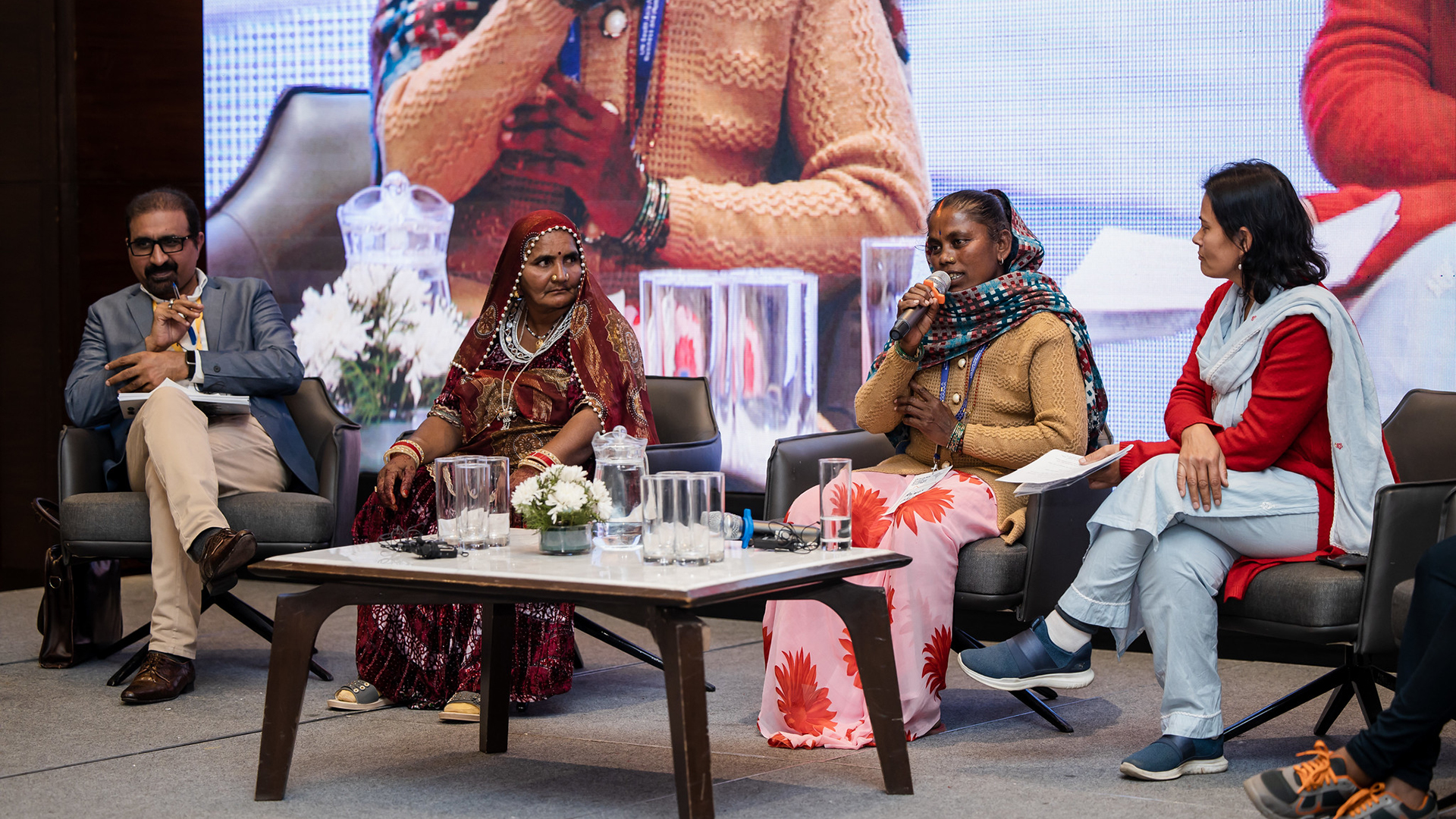4th UN South Asia Forum on Business and Human Rights Forum was held 20-22 March in Kathmandu
Forum spotlights the workers from South Asia fueling development across the region
April 3, 2023

“People cannot be put behind profit, rights cannot be relegated below revenue, and sustainability cannot be set behind spreadsheets. We cannot afford to have human rights as mere footnotes in our business practices,” said Shanker Das Bairagi, Chief Secretary, Government of Nepal, in a strong call for greater business accountability for human rights at the opening of the 4th United Nations South Asia Forum on Business and Human Rights, held 20-22 March 2023 in Kathmandu, Nepal.
The forum was co-organized by five UN agencies – the International Labour Organization, International Organization for Migration, UNDP, UN Human Rights Office, and the UN Working Group on Business and Human Rights – and was supported by the governments of Sweden and Switzerland. Additional support was provided by the governments of Norway and Japan, the European Union, and GIZ in Bangladesh.
More than 300 people representing civil society, business, government, and Indigenous Peoples groups joined the discussions that followed over the three-day forum in Kathmandu, with an additional 320 people joining the virtual webinar. The sessions drew attention to the workers fueling development across Asia under four broad categories of global supply chains, migration, just transitions and the informal economy.
The challenges facing workers in Asia were brought to the stage by workers and human rights defenders from Bangladesh, India, Nepal and Sri Lanka and Pakistan, who joined panels focused on gig and contract workers, women workers, and young workers and the future of work.
Across the sessions, speakers and participants brought forward perspectives from South Asia to challenge existing narratives on business and human rights, including during a session exploring Global South perspectives of the growing number of mandatory human rights due diligence laws in place or in progress in countries in Europe, Australia, the United States and Japan.
“The law assumes that the human rights violation – the cause of human rights violations – is in the Global South alone. The human rights violation might take place in the Global South, but the causes are in the Global North. Any legislation should try to address that cause, and if doesn’t, it’s going to enhance the human rights violation,” said Pradeep Narayanan, Director of Partners in Change.
The need for collaboration and exchange was also emphasized, including in a session commemorating the Rana Plaza tragedy. It featured a conversation between representatives of bodies established in Bangladesh and Pakistan on progress over the last decade and relevant lessons for other countries and industries.
Emphasizing the need for a stronger collective voice from South Asia during a session on just transitions, Farah Kabir, Country Director of ActionAid Bangladesh, said “When the issue of Africa comes, the AU comes together. When the session about small islands comes, they come together. South Asia can’t come together – this has to stop, because we are all at risk.”
The forum also acted as a platform for Indigenous Peoples and climate, land and human rights defenders to share experiences, challenges and potential solutions to address issues related to migration, just transitions and the broader business and human rights agenda.
Several sessions focused on issues related to migration, including ethical recruitment and temporary labour migration programs, as well as measures needed to better protect migrants' human and labour rights. “Governments, civil society and the private sector must work together to eliminate the potential risks for migrants, and to respect their human and labour rights," said Geertrui Lanneau of the IOM Regional office for Asia and the Pacific, adding, "The UN Guiding Principles on Business and Human Rights are built on the foundation of the International Bill of Human Rights, coupled with the principles concerning fundamental rights in the eight ILO core conventions, and indeed, these international legal standards include migrants.”
“The road ahead will, no doubt, present us with more hurdles and unexpected challenges. But if we adhere to these guiding principles, increase our ambition and place people at the center of our efforts, we can weather this storm together,” said Hanaa Singer-Hamdy, United Nations Resident Coordinator in Nepal.
Several trainings were also held during the forum, including an open training on the UN Guiding Principles on Business and Human Rights and the MNE Declaration prior to the inaugural session and a training for businesses on the UNGPs. A training for journalists from across South Asia supported by the Government of Sweden was also held on the sidelines of the forum, featuring an initial day of in-class training followed by deep dive meetings focused on specific topics or skills, along with opportunities to watch and speak during the main forum sessions. A safe space session was also held for national human rights institutions from the region.
Watch the session recordings here, explore photos from the forum here, and find more information on the sessions on the forum website: www.safbhr.com.

 Locations
Locations





